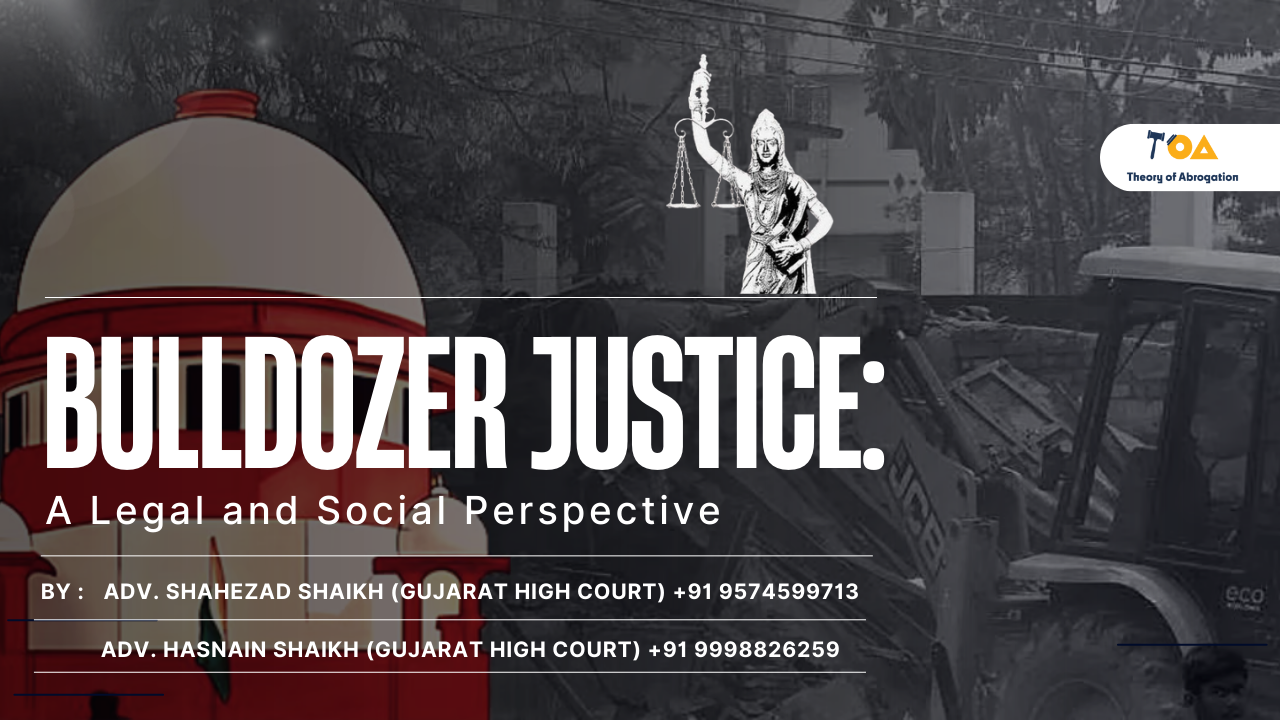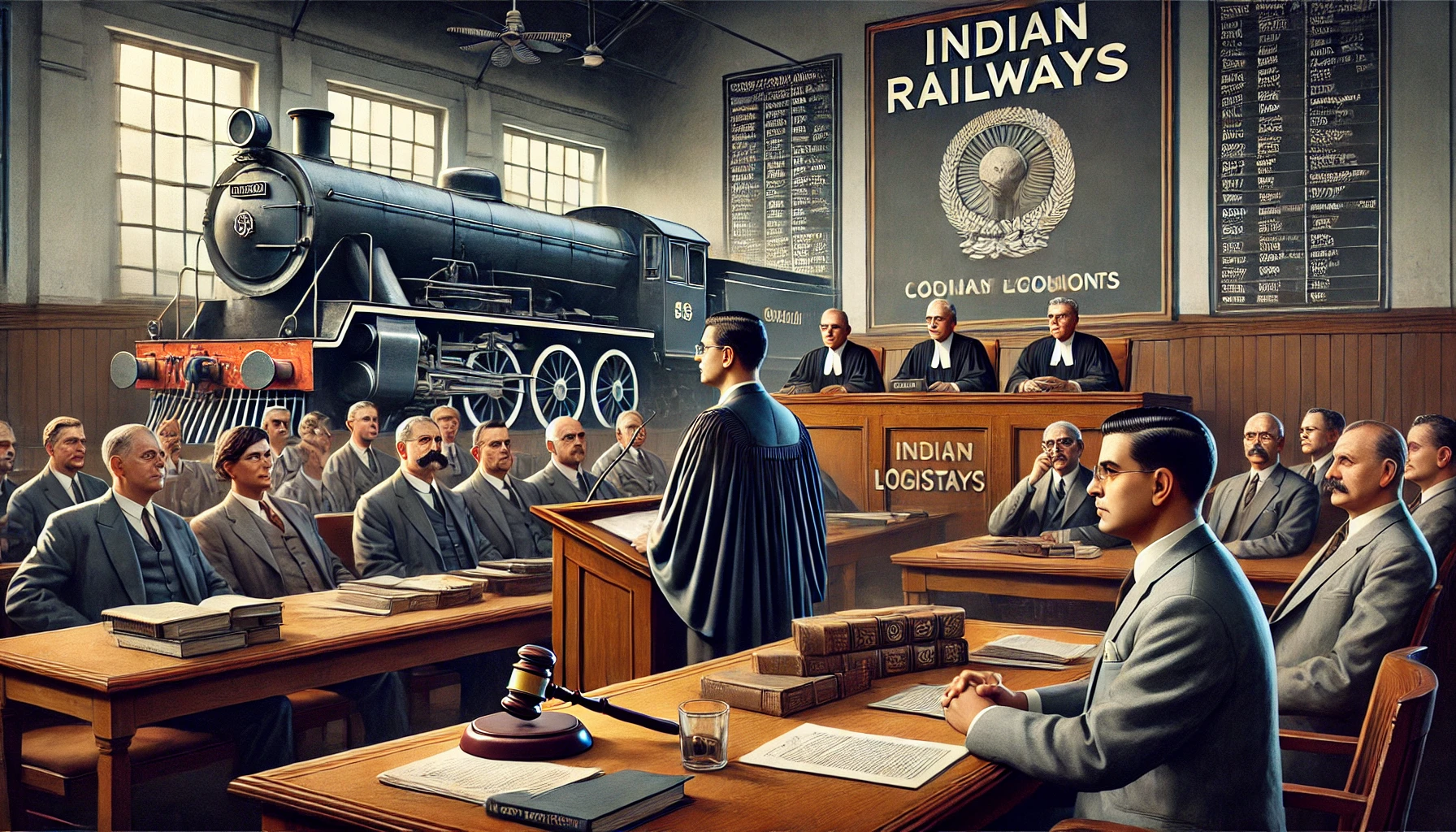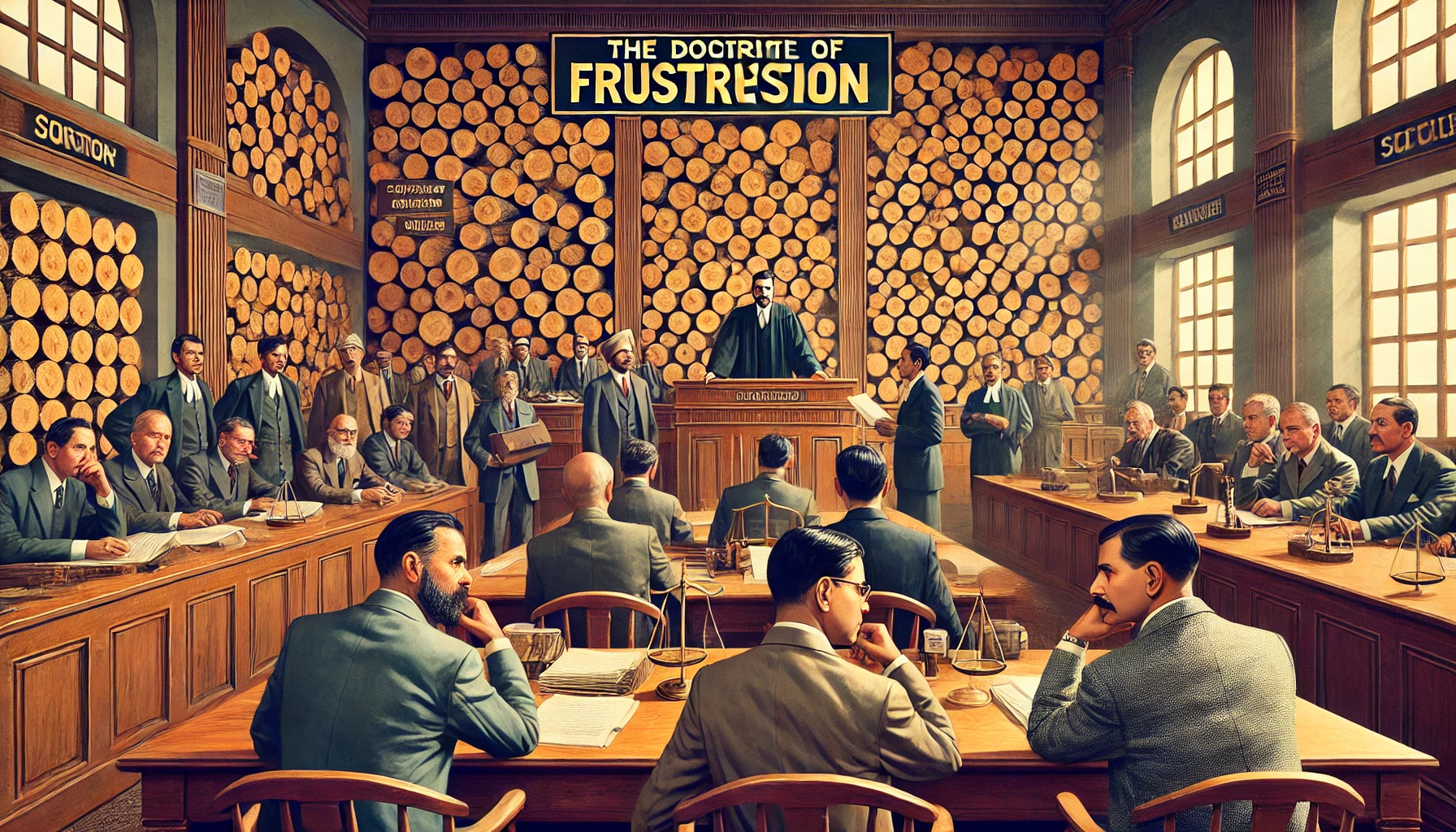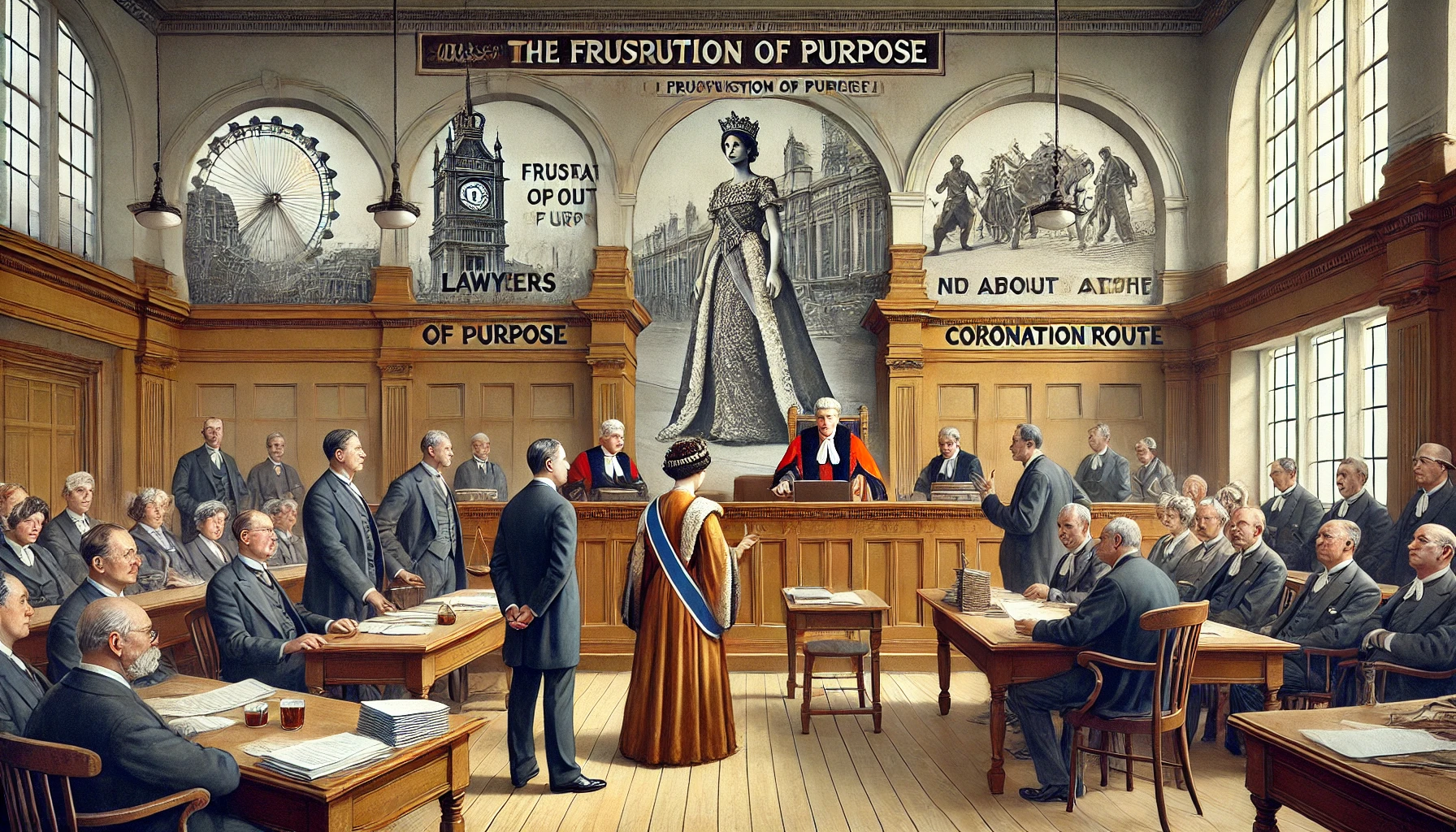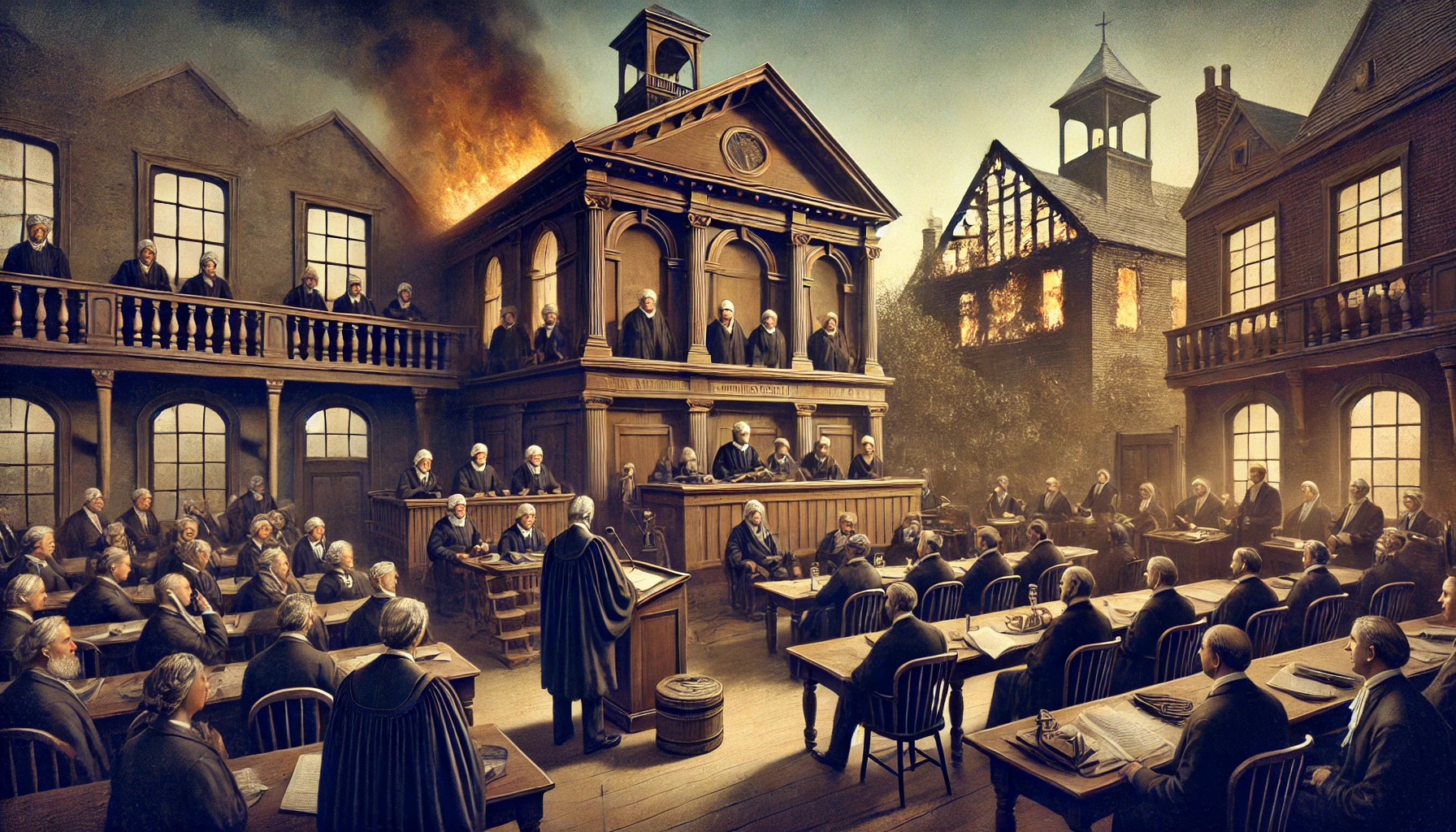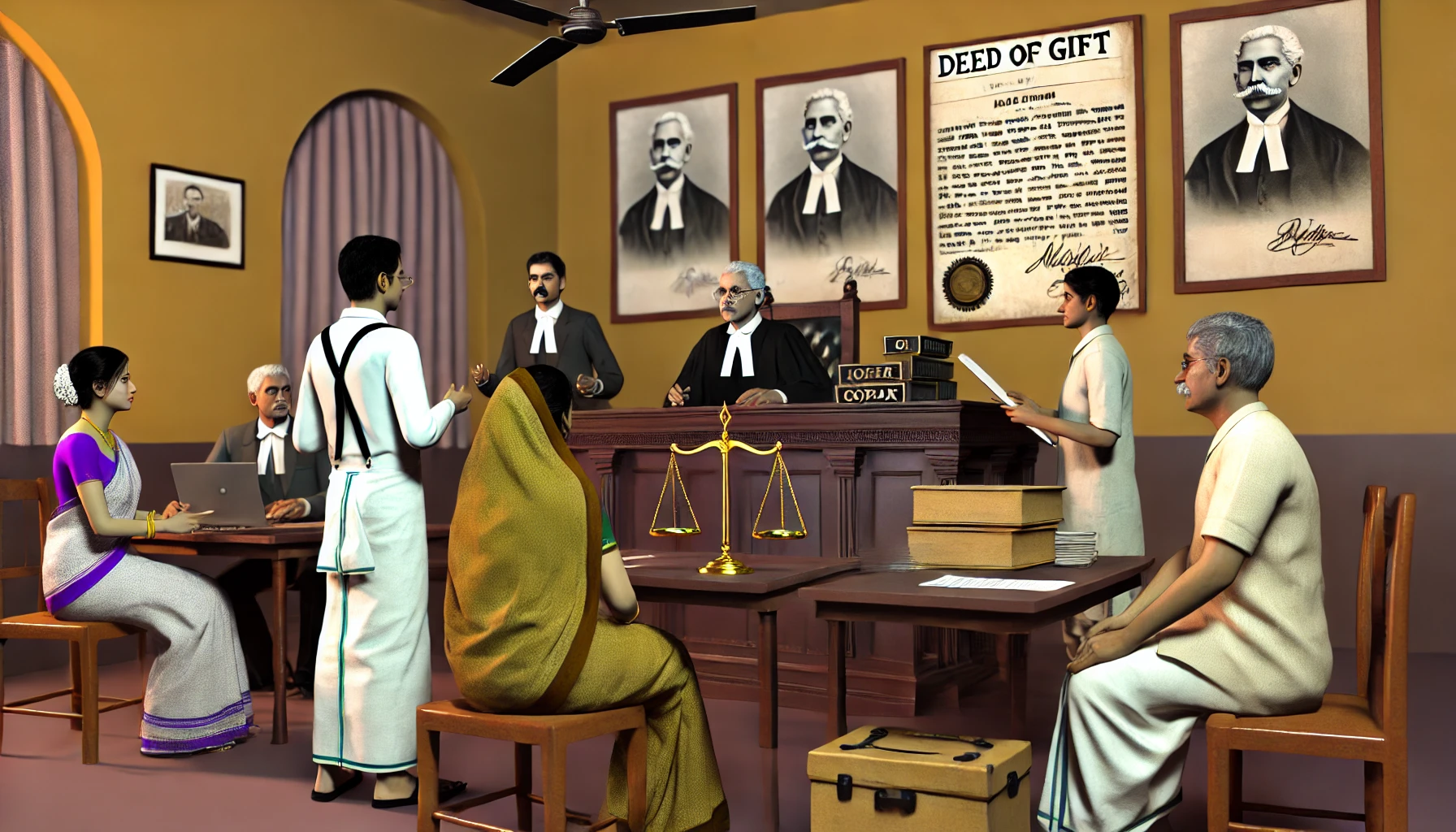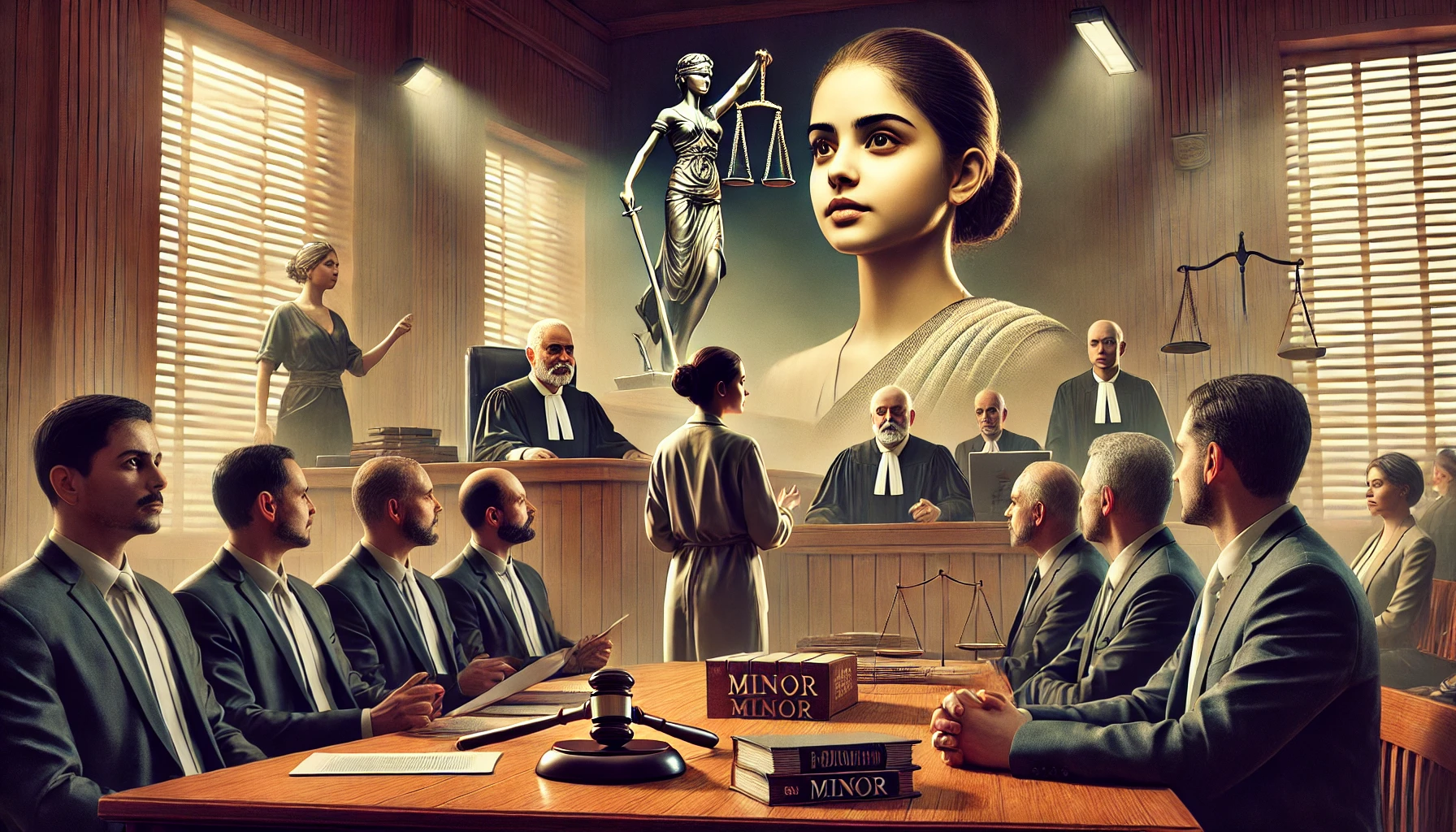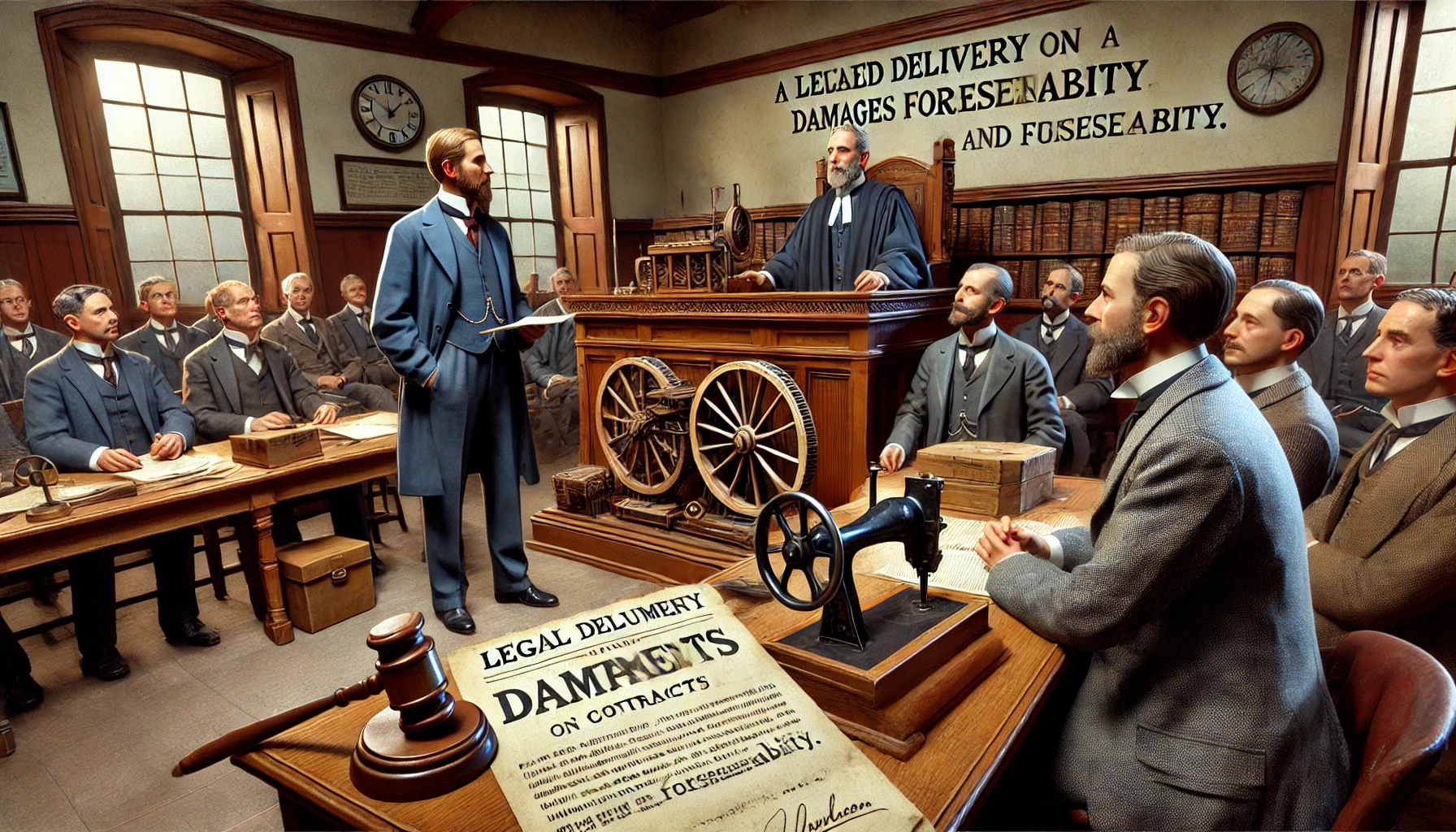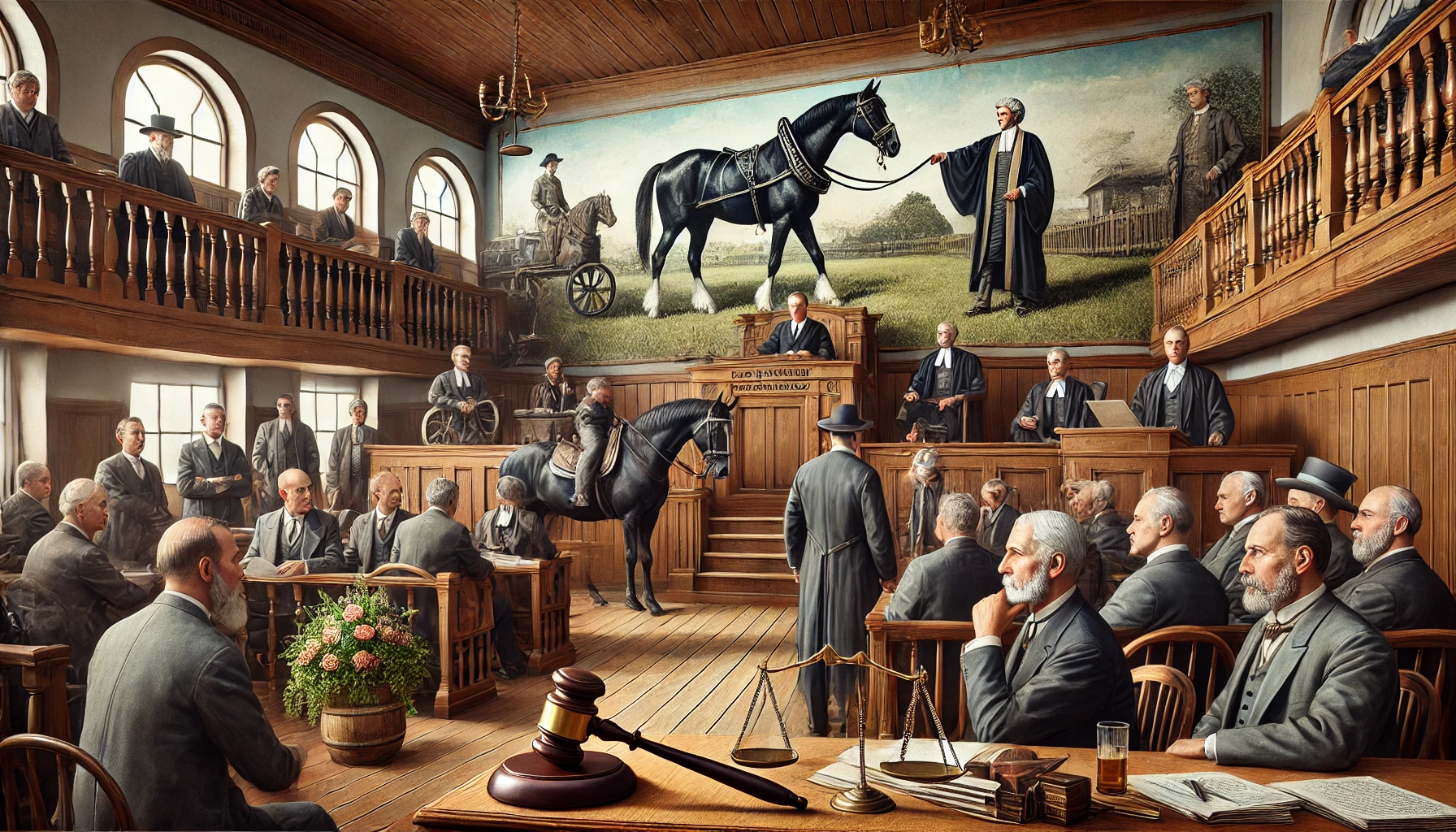Bulldozer Justice: A Legal and Social Perspective
On, 1st, December, 2024 Today, we open our New Chamber in the name of The 3rd Generation of Legal Fraternity, on august day we thought to write an article which help the societies as well public officers at large, so we refer the recent case law of our Apex Court in reference of Directions in the matter of Demolition of Structures in WRIT PETITION (CIVIL) NO. 295 OF 2022 with WRIT PETITION (CRIMINAL) NO.162 OF 2022 along with WRIT PETITION (CIVIL) NO. 328 OF 2022 by Hon’ble Mr. Justice B.R.Gavai [Curom Justice B. R. GAVAI & Justice K. V. VISWANATHAN]. BACKGROUND This Writ Petitions are filed under Article 32 of the Constitution of India seeks to raise the grievance on behalf of various citizens whose residential and commercial properties have been demolished by the state machinery, without following the due process of law, on the ground of them being involved as an accused in criminal offences. This judgment is started with Kavita written by Hindi famous peot Pradip “अपना घर हो, अपना आंगन हो, इस ख्वाब में हर कोई जीता है। इंसान के दिल की ये चाहतहै, एक घर का सपना कभी नछूटे।” (To have one’s own home, one’s own courtyard – This dream lives in every heart. It’s a longing that never fades, to never lose the dream of a home.) Point to determined whether the executive should be permitted to take away the shelter of a family or families as a measure for infliction of penalty on a person who is accused in a crime ? whether the properties of the persons, who are accused of committing certain crimes or for that matter even convicted for commission of criminal offences, can be demolished without following the due process of law or not? To this aspect Hon’ble Apex Court has refer to the following observation of Lord Denning in the case of Southam v. Smout “‘The poorest man may in his cottage bid defiance to all the forces of the Crown. It may be frail– its roof may shake the wind may blow through it–the storm may enter–the rain may enter– but the King of England cannot enter–all his force dares not cross the threshold of the ruined tenement.’ So be it –unless he has justification by law.” Relief claimed (1) The petitions inter alia seek a direction to the Union of India and the concerned States directing them that no precipitative action be taken in respect of residential or commercial properties of any accused in any criminal proceedings. (2) Direction be issued for strict action to be taken against the official so the state machinery who have participated or participate in future in such an illegal exercise of demolition For considering the said question, the Hon’ble Apex Court has to determined following legal concepts; The Principle of the Rule of law. The Separation of Powers. The Doctrine of Public Trust in respect of government officials holding their offices. Rights Guaranted under the Constitution. Fairness in the Criminal Justice System. Right to shelter (1) RULE OF LAW The rule of law has been succinctly conceptualized by AV Dicey (Introduction to the Study of the Law of the Constitution), with this context the essential purpose of the rule of law is to prevent the abuse of power has summarized by Apex Court as under : No one is above the law of the land that every body is equal before the law Under the constitutional framework there is no scope for arbitrariness by officials. No one can be punished or made to suffer in body or goods except for a distinct breach of law established in the ordinary legal manner before the ordinary courts of the land. It is only the courts which are independent adjudicators of the rights of the parties and under the constitutional framework it is only they which can impose punishment. Government officials and citizens are bound by and have to abide by the law. There “must be mechanisms or institutions that enforce the legal rules if they are breached”. Courts should be available to enforce the law and should employ fair procedures”. The law must be just and fair, and “protect the human rights and dignity of all members of society”.. Rule of the law as per Lord Bingham “Ministers and public offenders at all levels must exercise the powers conferred on them in good faith, fairly for the purpose for which the powers were conferred, without exceeding the limits of such powers and not unreasonable”. The rule of law has also been described as “an umbrella concept for a number of legal land institutional instruments to protect citizens against the power of the state”. Moreover, “Rule of law is integral to and necessary for democracy and good governance” because attempts to democratize without a functional legal system in place have resulted in social disorder”. With this regard the Hon’ble Apex Court has observed It can thus be seen that the law must be just and fair, and also protect the human rights and dignity of all members of society. At the same time, the essential purpose of the rule of law is to prevent the abuse of power. The rule of law is an umbrella concept to protect citizens against the power of the State. It is integral to and necessary for democracy and good governance While we consider this aspect, we are of the view that the concept of rule of law needs to be considered broadly. The legal sanctity of practices in the past such as slavery in the United States, apartheid in South Africa, or untouchability in India would have to be considered as antitheses to the rule of law Case law discussed on Rule Of Law The relevance of the rule of law in our constitutional system has been considered by Apex Court in various judgments. In the case of Smt. Indira Nehru Gandhi v. Shri Raj Narain , has held the rule of law to be part of…
Read More “Bulldozer Justice: A Legal and Social Perspective” »

